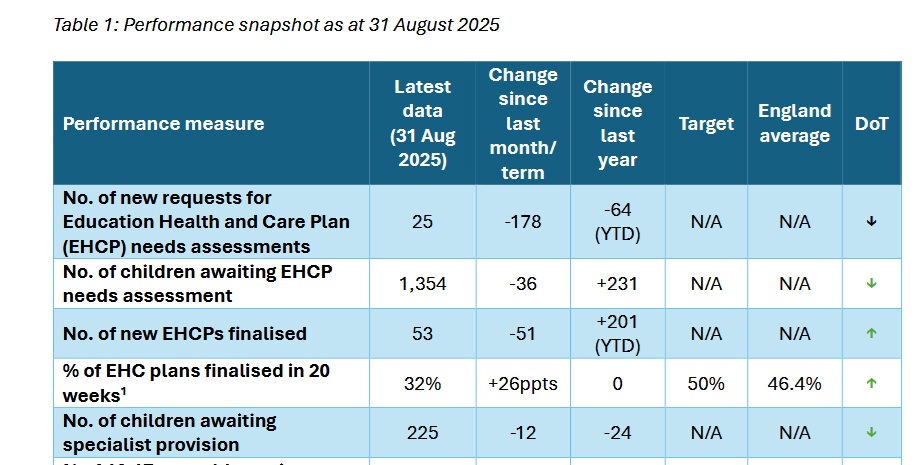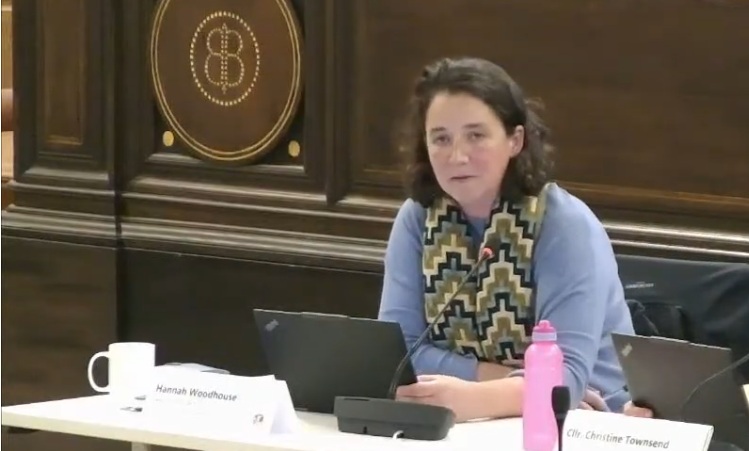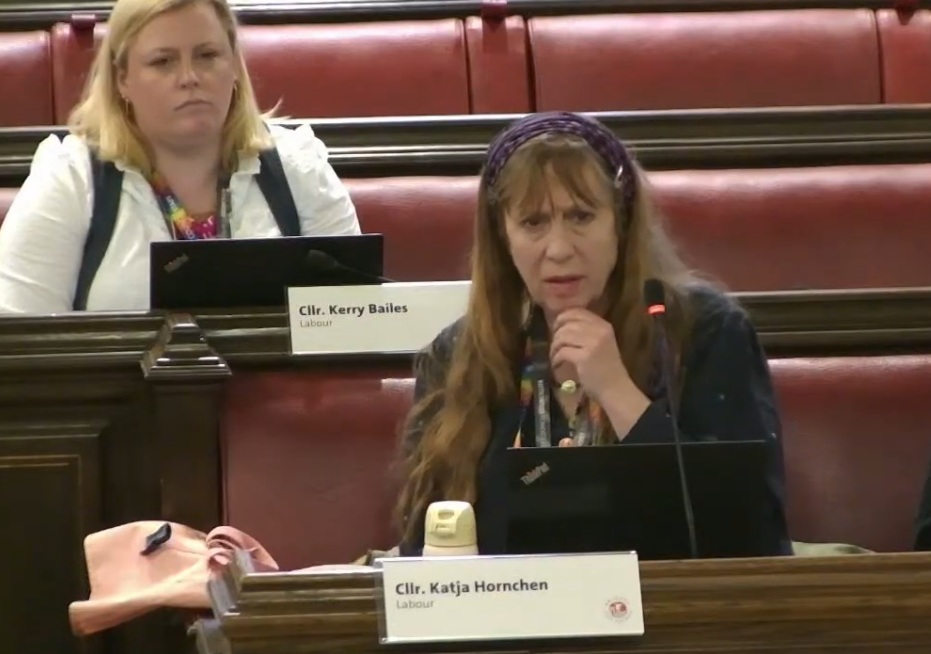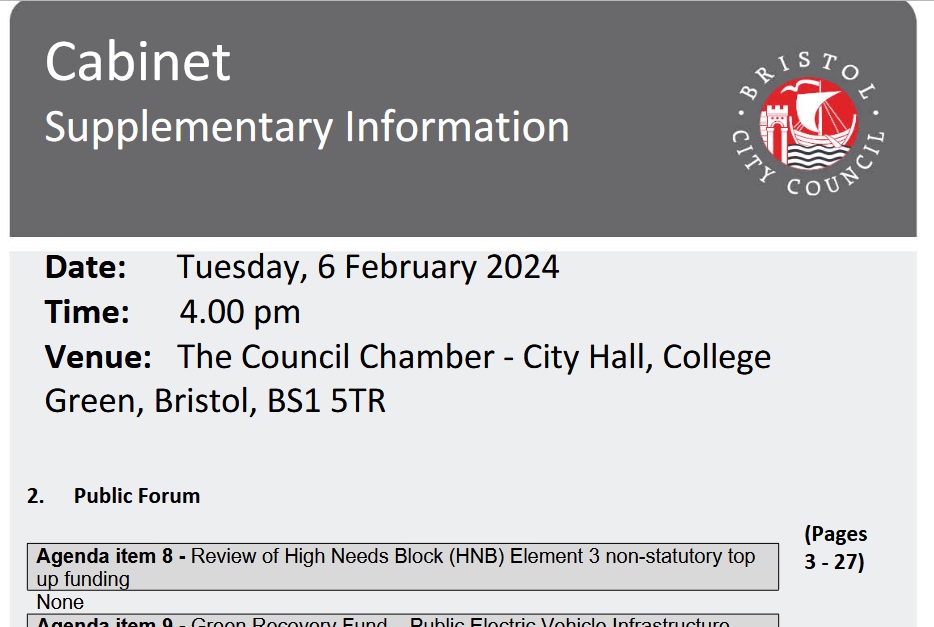Bristol City Council EHCP Timeliness Woes Continue
Labour councillor grills education leaders despite not speaking out against Send funding cuts
Issues around Bristol Education Health Care Plan (EHCP) timeliness was a source of sniping at Bristol City Council this month.
Labour councillor Katja Hornchen, grilled education officers around continuing delays to EHCPs at Children and Young People Policy Committee.
Council officers brought data around how education and Special Educational Needs and Disabilities (Send ) was performing.
Issues around EHCPs has been a historic difficulty for Bristol City Council. In recent years, cuts to non-statutory top up funding by the former Labour administration has added to the council’s woes.
In December 2024, Executive Director for Children and Education Hannah Woodhouse had told the same committee that the result of Labour councillors cutting non-statutory top up funding had caused a surge of requests for the Send plans:
She said at the time: “One of the reasons we’re seeing in Bristol more EHCP assessments is we think linked to the removal of top up funding. Which we consulted on two years ago, which we’re taking out of the system. We’re seeing a number of those children present for an EHCP whereas previously they would have had non-statutory top up funding. I think we’ve got a national pressure or rise in need of children but in Bristol, we’ve also got the removal of top up which has driven further pressure on the system.”
At Children and Young Policy Committee almost a year later, Bristol City Council’s own data shows the it’s still battling to get to grips with EHCP timeliness.
The council’s own data showed as of the end of August 2025, there were 1,354 children and young people waiting for an Education Health Care Needs Assessment (EHCNA). This is the part of the process before it is decided whether or not a plan is needed.
It was also not good news for families who had been through the process and needed a specialist placement. There were 225 children and young people waiting for a place at the end of the summer.
And for those still in the process, the number of plans finalised in 20 weeks might look good at 32 per cent. But this is just the percentage of plans completed on time in July 2025.
The year to date timeliness is just 05 per cent.
For the whole of 2025 to 31 August 2025, Bristol City Council received 1,010 EHCNA requests. Despite their struggles to manage the system, this was a decrease of 06 per cent compared to the same time period last year.
Overall, Bristol City Council is still below the national average despite years of blaming “unprecedented demand”.
The rate of requests per 10,000 population in Bristol for Quarter 1 2025/26 sits 22.0. The England national rate is 23.2. Bristol has never overtaken the national average since the Send reforms were introduced in 2014.

At Children and Young People Committee this month, Hannah Woodhouse addresed issues with the EHCP process.
She said: “As we’ve said many times we need to do significant improvement work. We’ve published an improvement plan in this area and our performance in August was 32 per cent. However, you’ll note that that’s a significant jump from previous reflect August rather than ongoing improvement.
“We would expect it probably to come back down but to creep up which as you can see over the last few months it has been creeping up. Because of the hard work that the team have been putting in to be able to progress those EHCPs as quickly as we can.”

Councillor Brislington East, Katja Hornchen asked: “I was just going to clarify with the EHCPs. It sounds 32 per cent sounds like a really good positive number, but I do realize that that’s the August number. So, we’re assuming that it’s going to go back down to a lower number in post August, September, October. Is that correct?”
Director of Education and Skills, Vik Verma said: “I think we’re looking at two parts I suppose when we’re or three parts in fact when we’re thinking about the performance of the SEND service in that space.
“Timeliness is one part. The second is the overall output of the service in terms of bringing down the backlog.
“The third is about the performance of the education psychology service and being able to complete those assessments.
“In some we need to triangulate the kind of the three of those together in terms of the different contact points we’ll have with families and how we bring the backlog down. Because timeliness won’t necessarily give us a sense of whether the backlog is coming down. And that’s the aim of the improvement plan that we published and shared with committee at the last meeting.
Hornchen asked: “We’re still following the plan where you said that you were going to try what you were doing was you’d had a whole group of children that came up with that lost their top up fee. Were going through the EHCP process and I understand that they still have support in place. So, that’s the one thing I wanted to know. But that should be dropping off now. Because you do have less numbers than last year.”
Verma replied: “So I think if I understood correctly, you’re referring to the number of new requests for children who were in receipt of top up. So those will continue, we will continue to fund those until the assessment is complete.”
Hornchen said: “We know that.”
Verma continued: “We’ve also made a commitment to our schools that where there’s a delay in the assessment we will backdate all funding assuming the education health and care plan is approved and completed to the point at which that 20 weeks would have been up as well.
“So again to make sure that schools are not penalised for some of that delay. So this is set out in the EHCP improvement plan which we published in I think it was September. But those are two of the aspects I think that you’re referring to that we have made in terms of policy change.”
Hornchen replied: “Because it’s quite bad if you’ve have over a thousand new applications but you’ve only managed to actually get 686 issued.
“”I’m assuming that not many of the EHCNA plans are being declined. Do you know how many percentage of them are declined or not given?”


The Cabinet papers for the meeting that top up funding cuts were made show no public forum items from any Bristol Councillors.

Verma said: “I do have that. if if helpful I can provide that to you after the committee. It’s on a file.”
Hornchen said: “This shows the plans of how many there are. I mean 41 weeks or 42 weeks what it is still a really long time. That’s almost a school year and in a child’s life that’s a long time.”
Verma replied: “So I think what we have seen is a reduction in the overall time. I’m just trying to find it in the report. but it’s approximately 49 weeks down to 42 which is quite a significant reduction in the length of the total time in the backlog. It has been as much as 52 at one point 52 weeks. So, it’s an improving trend. But it’s a momentum we need to sustain for a significant period of time, probably for the remainder of this academic year. To get to a point where that backlog has come down to a more manageable level.”
Hornchen asked: “Is that still because we’re stuck in the place for educational psychologists and NHS help. The length of time?”
Verma said: “No, I think the health service has been quite timely in their responses where we’ve requested support from them or advice on whether they are working with a child already through through that work.
“Education psychology, we’ve seen roughly a 44 per cent increase in their output based on last year’s output.
“So it’s been a very significant improvement in their performance and their backlog is coming down now at a positive rate.
“This is I suppose we’ve said before mostly linked to the withdrawal of top up and school seeking funding from alternative sources.”
Hornchen said: ” So, I’m still quite disappointed by the numbers with the EHC PL P plans, I have to say, because I know how long parents wait for them and I know how traumatic it can be waiting for the help that you need and then having to go through all of the processes.”
Hannah Woodhouse said: “I just wanted to recognise that and you know obviously I’m responsible for for the service with Vik. And I mean as we say every time we meet that we do recognise how long it’s taking to be able to…”
Hornchen interrupts: “It’s a huge chunk of a child’s life.”
Woodhouse continues: “It is a Bristol issue in the sense that the top up was removed and as we know a large proportion of that group are continuing to be supported but obviously moved from being supported in school to to the front door of the service.
“It is also a national issue where you know the national average is less than 50 per cent. At the moment we we’re way below that and we want to get at least to that. That’s that’s our ambition.
“I mean Vic has recruited really significantly into the service as you know that does take time. And so we’ve got a lot of staff coming into the service.
“We’ve also had a lot of EPS coming into the service. So we’re moving slowly and as we’ve said before you know, the service is moving as as quickly as they possibly can.
“We have seen the numbers for the first time come down of new requests for assessment.
– Hornchen interrupts but Woodhouse continues –
“What we may be seeing a little bit of is as there’s some concern about where the Send white papers coming, we may see more demand from parents wanting to have children assessed earlier. We haven’t seen that as much here. So we are seeing demand coming down which is a good thing probably.
“But I suppose I just wanted to recognise the frustration that many will feel around this and also recognise the efforts of the service in in trying to meet that.”
Hornchen asked: “One of the questions I’m wondering is does that have a knock-on effect of children that are electively home ed educated that we think are not quite electively home educated? Encouragedly home educated shall we call it?
“Would that have an that would have an effect on the EHCPs not being in place and then I also wanted to talk the other the 225 children waiting specialist provision. Do we know where they are? are they in the school that’s not right for them are they at home?”
Verma answered: “I don’t have the specific data in front of me but there is a mix so there are a number of children who are in a mainstream school being supported with additional funding in place. there are a small number that are missing education and where we are actively looking for a specialist placement.”
Hornchen said: “Some of them would be in the missing education figures. so I’m wondering with this whole EHCP backlog and with some of these other things waiting for specialist provision I’m quite sure that’s affecting our children missing education or electively home education children as well it’s affecting those figures as well.”
Verma said: “Yeah I think to also comment the children with an EHCP that are home educated figure has remained steady for the last, certainly since the beginning of this.”
Hornchen interrupts: “I’m talking about the ones that are waiting for an EHCP.”
Vik says: Yes. And then that’s a different cohort.”
The meeting is available to watch online
Home: https://backstagebristol.com/
Bluesky: https://bsky.app/profile/chopsybristol.bsky.social
TikTok: www.tiktok.com/@chopsybristoltt
Facebook: https://www.facebook.com/backstagebristol
YouTube: https://www.youtube.com/user/chopsybaby

